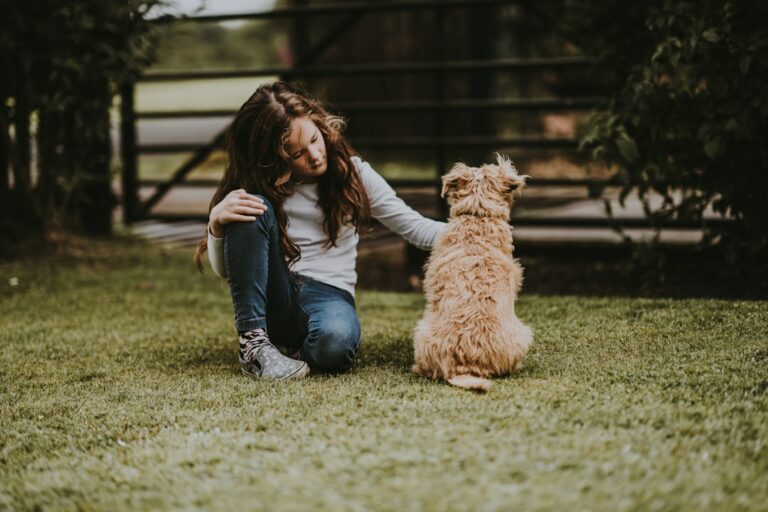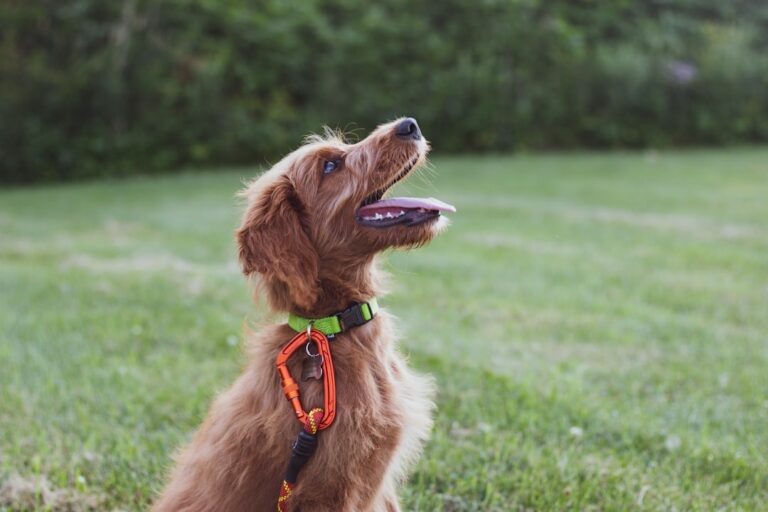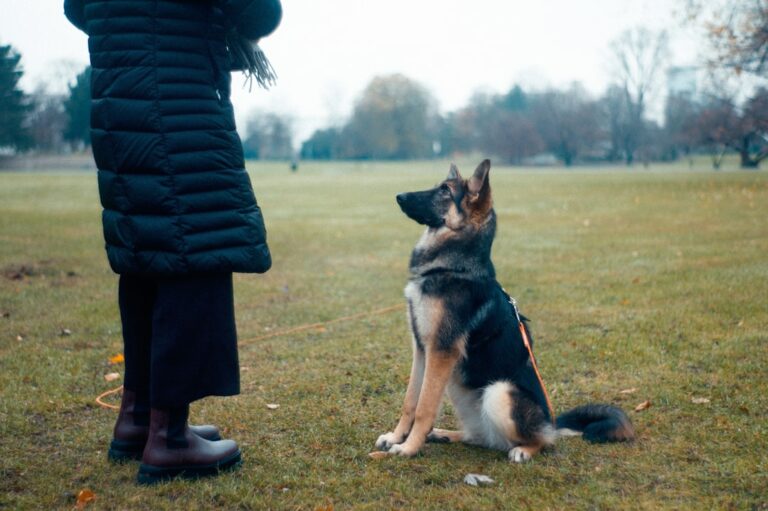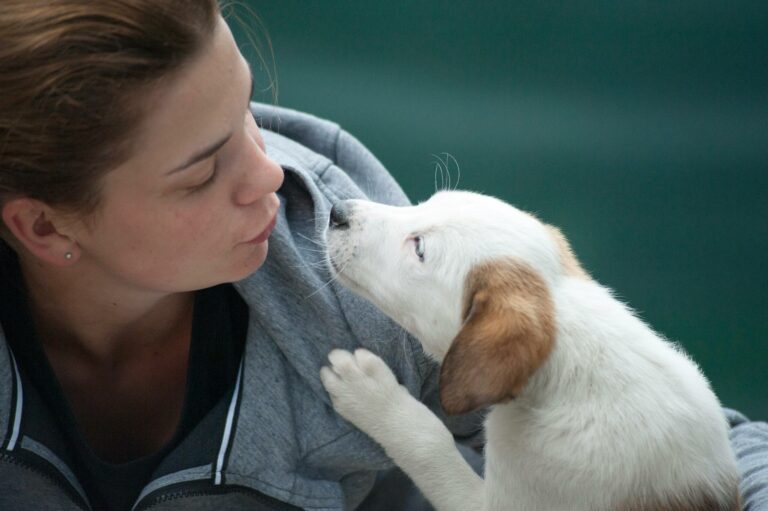Training Your Senior Dog: Strengthening the Bond for a Lifetime
Building a Strong Bond with Your Older Dog through Training: Exploring the benefits of consistent training in strengthening the emotional bond, preventing cognitive decline, and promoting a harmonious relationship with your senior dog.
Introduction to Building a Strong Bond with Your Older Dog through Training
Training isn’t just for puppies; older dogs also greatly benefit from consistent training sessions. These sessions are more than just teaching new tricks; they serve as a bridge, fostering a deeper connection and understanding between pets and their owners. Each training moment is an opportunity for quality interaction, allowing for enhanced communication and thus, a stronger emotional bond. Imagine teaching your senior dog to respond to a new command and the joy that follows a successful attempt. This shared joy is a building block for a deeper bond.
Moreover, older dogs benefit immensely from the mental stimulation provided by training activities. Just like in humans, engaging the brain helps keep it sharp, contributing to the overall well-being of your senior canine companion. Consider the story of a senior dog learning to navigate an agility course tailored for its age and capability; the mental and physical engagement involved in such an activity can significantly enhance the dog’s quality of life.
The Importance of Training Older Dogs
Training plays a crucial role in preventing cognitive decline in older dogs by keeping their minds active and engaged. It’s a common misconception that older dogs can’t learn new behaviors, but the truth is they can, and doing so can greatly enhance their quality of life. Moreover, ongoing training instills a sense of accomplishment and boosts their confidence and happiness. For instance, an older dog mastering the “stay” command can feel a renewed sense of purpose and belonging, reinforcing its bond with the owner.
Additionally, older dogs adapting to new behaviors through training can find renewed joy and stimulation in their daily routines, which is essential for their overall happiness and mental health. The sense of achievement they get from learning something new also contributes to a positive self-image and emotional well-being.
Benefits of a Strong Bond Through Training
A strong bond built through training leads to increased trust and loyalty from the older dog towards the owner. This trust foundation makes the dog more receptive to learning and following commands, creating a positive feedback loop that strengthens the bond further. Training also promotes a sense of security and predictability for older dogs, reducing anxiety and stress. For example, a senior dog that learns to trust its owner through consistent positive reinforcement during training sessions may show less anxiety in stressful situations, knowing it can rely on its owner for guidance and protection.
Moreover, the bond formed during these training sessions fosters a harmonious and enjoyable relationship between the owner and their senior dog, making everyday interactions more pleasurable for both. Imagine the peace that comes with having a well-behaved senior dog that responds to commands not out of fear but out of trust and respect for its owner.
Tips for Effective Training of Older Dogs
When training older dogs, it’s crucial to incorporate short, frequent training sessions to accommodate their reduced stamina and attention span. This approach ensures they remain engaged without becoming overly tired or frustrated. Additionally, adjusting training techniques to cater to any physical limitations or health concerns is essential for a positive training experience. For instance, an older dog with arthritis might benefit from low-impact training activities that don’t strain its joints.
Consistency in training methods and expectations is key to successful communication and bonding with older dogs. Consistent commands, rewards, and routines help older dogs understand what’s expected of them, reducing confusion and strengthening the trust between them and their owners.
Positive Reinforcement Techniques for Older Dogs
Positive reinforcement is particularly effective with older dogs. Identifying and using high-value rewards, such as favorite treats or toys, can significantly enhance the effectiveness of positive reinforcement. Pairing verbal cues and hand signals with these rewards reinforces desired behaviors during training sessions. Celebrating small victories is crucial to maintaining motivation and enthusiasm in older dogs, making the training process enjoyable for both the dog and the owner.
For example, rewarding an older dog with a special treat for successfully performing a “sit” command reinforces the behavior and strengthens the emotional connection between the pet and its owner through shared positive experiences.
Age-Appropriate Activities for Senior Dogs
Engaging older dogs in mentally stimulating games like puzzle toys or scent work can keep their minds sharp and engaged. Incorporating gentle physical exercises like swimming or short walks is crucial for maintaining mobility and joint health. Social interactions with other friendly dogs or supervised playtime can also help older dogs stay socially engaged and happy, contributing to their overall well-being.
Imagine an older dog engaging in a gentle tug-of-war game with its owner, using a soft toy that’s easy on the teeth and jaws. This activity provides both mental and physical stimulation while reinforcing the bond through play.
Addressing Preference for One Owner Over Another
Building a bond with the less favored owner involves spending quality time engaging in activities that the older dog enjoys. Establishing a routine that includes the less favored owner in feeding, grooming, and play sessions can help strengthen the bond with the older dog. Patience and consistency from both owners are crucial in ensuring a balanced bond and relationship with the older dog. Time, shared activities, and mutual respect can gradually shift the dog’s preferences, ensuring a more evenly distributed affection and bonding within the family.
Off Leash K9 Training of San Antonio, TX: Your Partner in Bonding Through Training
Off Leash K9 Training of San Antonio, TX, offers tailored training programs to meet the specific needs and abilities of older dogs. The personalized approach ensures that older dogs receive the attention and guidance required for successful training and bonding. Visit Off Leash K9 Training of San Antonio, TX to explore the range of training packages available and take the first step towards building a stronger bond with your older dog.
Conclusion: Strengthening the Bond with Your Older Dog Through Training
Training is a powerful tool in deepening the bond between older dogs and their owners. It offers a pathway to understanding, communication, and mutual respect that enhances the quality of life for both the dog and the owner. Investing time and effort into training older dogs is not just about teaching new tricks; it’s about enriching the relationship and ensuring a fulfilling and harmonious life together. Prioritizing training and bonding activities with older dogs is essential for their overall well-being and happiness, making every moment spent together count.












